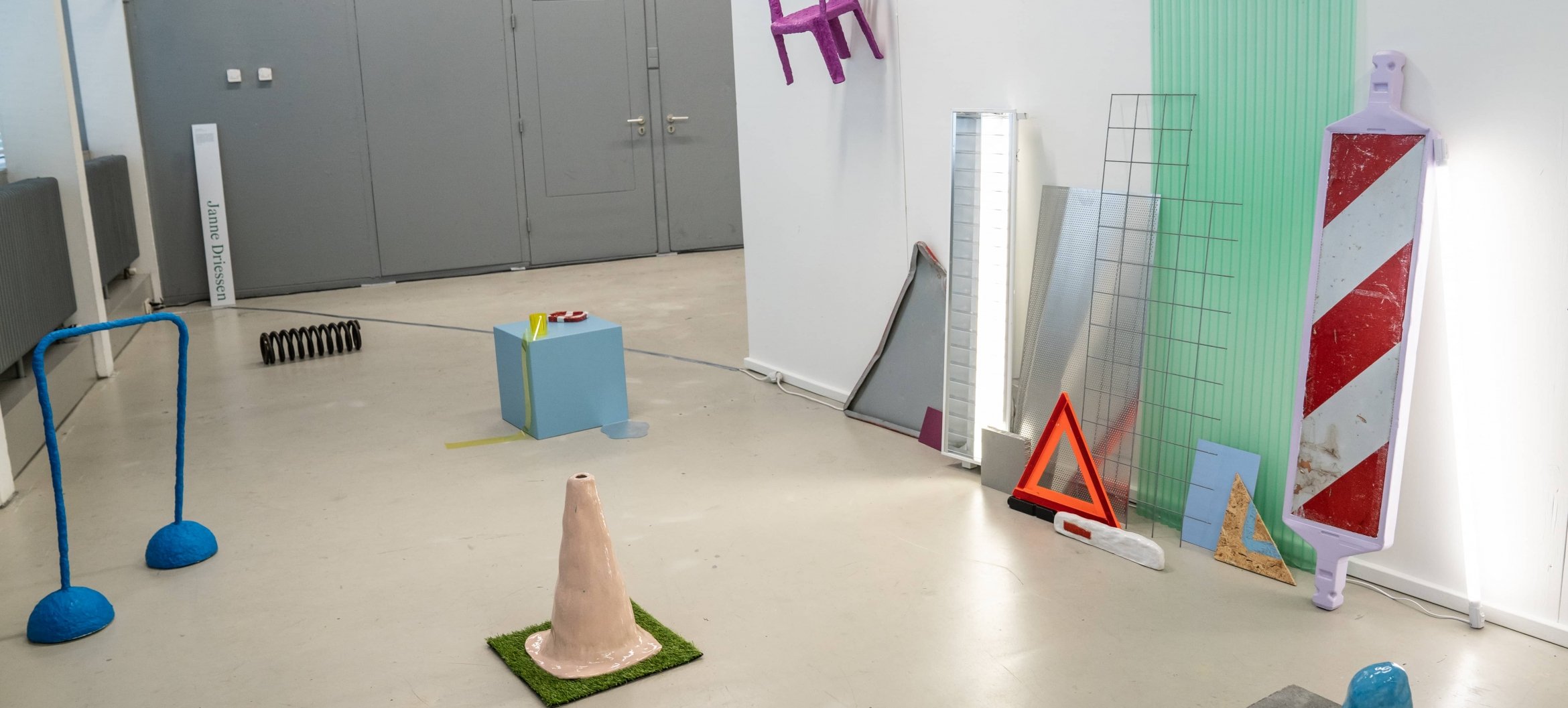Tips for effective networking: ‘let the words come by themselves.'
A few generic phrases, an exchange of business cards, and yet another chat about opportunities and possibilities. Sound familiar? Many people think that's the essence of the traditional networking event. What can you do to avoid awkwardness or feeling like an intruder when you're talking to a potential client or collaborator? The coming weeks, alumni Tim Bongaerts and Lars Meijer will write a series of articles with only one goal: move your entrepreneurship forward with practical tips.

It seems so easy, talking about your interests and your work. "What are you working on right now? I'm working on this commission or that exhibition." And then the conversation falters, and suddenly you're hyperaware of how artificial it all is. Then what? That's where our first tip comes in: networking should, ideally, be a mutual exchange. The person you're talking to is usually also looking for a chance to expand their network of acquaintances or find new professional opportunities. Besides, it's a good thing for everyone to get to know more people in their own field, especially if they may be available for collaborations later. But even knowing all that, it can be difficult to have a collegial talk with a stranger about your work or theirs in formal networking settings. It tends to be so much easier at a party, where the words seem to flow almost automatically.
When Tim thinks about networking, a certain discomfort comes over him. "What tends to keep me from networking effectively is the idea that the people I'm trying to get to know are more capable than I am. That makes me feel like I should be listening, rather than talking. I realize I can't make a connection if I don't speak, and that my degree does in fact allow me to speak with some authority. Still, it's hard to get rid of the feeling that I don't belong in that conversation. Slowly but surely, I'm getting better at it, and usually I'll start feeling comfortable after a few minutes. But it's a hurdle I need to face every time." A few months ago, we spoke to musician Cedric Siegers about his flexible and resilient business. One of his lessons that stayed with us was his memorable slogan that 'networking isn't much more than having a chat about something you're both passionate about.' We've noticed, however, that most people don't quite feel that way: a lot of us feel awkward about networking and all that it involves. Why do we feel that way, and what can you do about it? Once again, we searched all over the internet for you to find the best tips on effective and functional networking:
Prepare. This sounds obvious, but you can often find out who is attending a particular event through a mailing list or the Facebook page, for example. If you know in advance who you want to talk to and what they look like, it makes things easier.
Speak with purpose. Since you know who will be present, you can chat up those people during the event. That way, you won't end up in aimless conversations while you're really hoping to talk to someone else. Or, as Cedric put it in the article: "Because I know the kinds of gigs that work for me and I know where I want to go, I don't get stuck in networks that I don't feel at home in anymore. I think it'd be a good thing for anyone to keep their mindset fresh in this way."
Let people know what you're about. Don't be afraid to introduce yourself with your profession, or to drop something you're working on in conversation. Nobody can approach you for commissions or collaborations if they don't know what your field of expertise is.
Help others. Networking isn't just something you do to find work and make money. If you're talking to someone and you're thinking to yourself: "maybe you should talk to...."? Then go ahead and suggest that!
Plan meetings with care. A common pitfall is to immediately plan a meeting with a new contact. Remember that it will take a big investment of energy for both of you. First, think carefully about what you want to achieve and why you're meeting this person.
A little awkwardness is fine. If a conversation isn't going too smoothly, for whatever reason, it's not a disaster. Your conversation partner is probably feeling the same way you are. Try to push past it, the other person will also appreciate that.
Be patient. Most networking doesn't immediately pay. When you've made a new contact, it can take a while before it leads to a commission. Following each other on social media after the event can help maintain your contacts and stay up to date on any opportunities.
Besides all these practical tips, the best thing you can do is to keep in mind that networking can also just be relaxing with a drink in hand. The most valuable and fruitful conversations are totally informal. Discomfort will soon disappear in the background and mutual interest will take its place. Good luck!
The graduates of 2020 were thrown into a completely different work field than they been prepared for. How do they deal with the influence of the coronavirus on their creative professional practice? Lars Meijer and Tim Bongaerts, 2020 alumni from ArtEZ Creative writing, will look for ways to do business in this new world in collaboration with the ArtEZ Business Center. By talking to resourceful entrepreneurs, they try to find out what it means to be an entrepreneurial artist at the moment.
More practical articles by Tim and Lars:
Who, what, where: finding your way around local initiatives
Standing strong: how to deal with (unreasonable) clients
That's mine! Copyright and intellectual property
The importance of a business plan: getting your ambitions in focus
Guarding your time: when is enough really enough?
Facing phone anxiety: 'preparation is everything.'